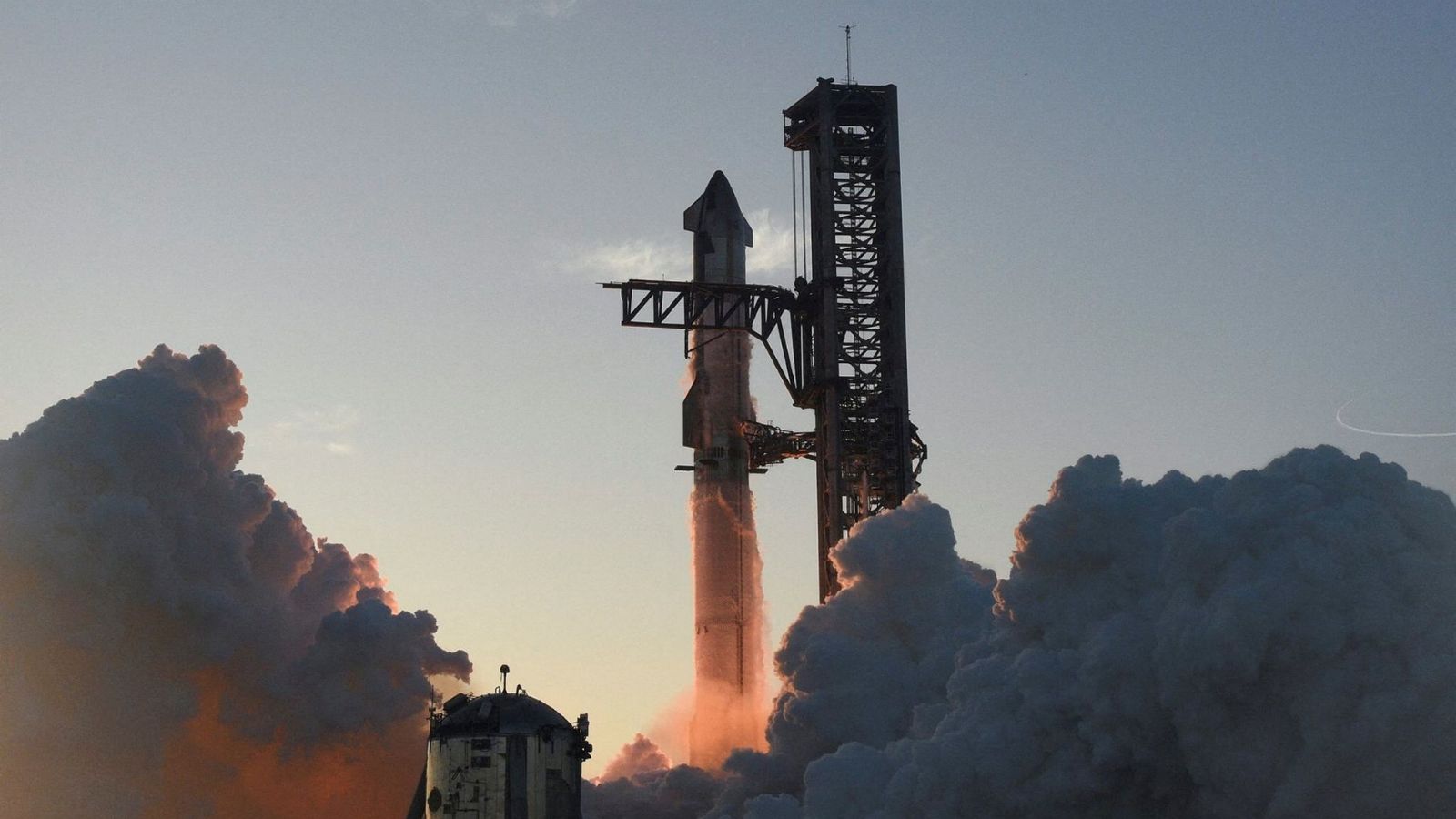SpaceX’s Starship could fly again within a month of second explosion
Elon Musk-led SpaceX's Starship rocket could be ready to launch on its third flight as early as next month. But it still remains to be seen whether the company will get a launch license.
 SpaceX's next-generation Starship spacecraft atop its powerful Super Heavy rocket is launched from the company's Boca Chica launchpad on an uncrewed test flight, near Brownsville, Texas, U.S. November 18, 2023. REUTERS/Joe Skipper
SpaceX's next-generation Starship spacecraft atop its powerful Super Heavy rocket is launched from the company's Boca Chica launchpad on an uncrewed test flight, near Brownsville, Texas, U.S. November 18, 2023. REUTERS/Joe Skipper SpaceX’s Starship — the biggest and most powerful launch vehicle built in history — exploded once again during its second test flight on Saturday. After deeming the launch a success, the Elon Musk-led private space company could launch Starship again as early as next month.
Musk on Monday said in a post on X, formerly Twitter, that Starship flight 3 hardware should be “ready to fly” in three to four weeks. This should mean that the rocket and spacecraft will be technically ready to launch sometime around December 20. However, there is no guarantee that a launch will happen around that time.
Just inspected the Starship launch pad and it is in great condition!
No refurbishment needed to the water-cooled steel plate for next launch.
Congrats to @Spacex team & contractors for engineering & building such a robust system so rapidly! pic.twitter.com/py5m1uhtEi
— Elon Musk (@elonmusk) November 19, 2023
Starship had its first flight in April, during which the launch vehicle exploded just minutes into take off. Compared to that, the launch on Saturday was a relative success. To begin with, stage separation happened successfully. Also, while many of the 33 rocket engines seemed to malfunction during the first launch, the rocket seemed to be firing at full blast during the launch on Saturday.
Further, while the April launch saw Starship destroying the launchpad, throwing chunks of concrete and other material around SpaceX’s Starbase facility in Boca Chica, Texas. The launchpad seemed to be intact after last week’s launch.
After concluding the investigation into the first launch in April, the Federal Aviation Administration grounded Starship until the company took many corrective actions. This is why the second launch happened nearly seven months after the first one.
Last week’s launch was only a partial failure. In theory, this should mean that there shouldn’t be anything like a seven-month-delay to the next launch. But it remains to be seen how long the FAA will take to complete its investigation and grant SpaceX another license.







